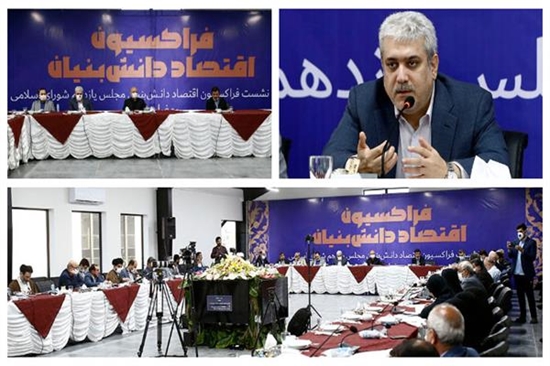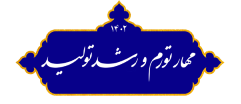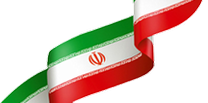Sattari: Universities Are the Basis of Economy/Oil Money Destroys our Intellectual Infrastructures
On the first meeting of “knowledge-based economics parliamentary group” of the 11th Assembly of the Islamic Council, Sattari stated: we do not consider universities only for their educational roles. In fact, universities must be the main pillar of the economy.

On the first meeting of “knowledge-based economics parliamentary group” of the 11th Assembly of the Islamic Council, Sattari stated: we do not consider universities only for their educational roles. In fact, universities must be the main pillar of the economy.
According to the information center of national elites foundation, According to the public relations and information center of the Vice-Presidency for science and technology affairs, the first meeting of “knowledge-based economics parliamentary group” of the 11th Assembly of the Islamic Council was held in the presence of Sorena Sattari, the vice president for science and technology affairs, Mohammad Bagher Ghalibaf, the representative of Tehran’s people in the 11th assembly of the Islamic council, and a number of parliament members. During the meeting, Sattari provided a report on the knowledge-based status of the country.
Human Resources Are Valuable Reserves of the Knowledge-based Economy
During the meeting, held in Sharif Innovation Station, Sattari explained about the latest achievements of knowledge-based companies, asserting: the issue of knowledge-based economics, which has been seriously pursued for the past six years, has seen many ups and downs to date.
The existence of more than 30 million young people, more than 4 million students and more than 12 million graduates are among the most valuable reserves that have become the drivers and backbone of the ecosystem based on the knowledge-based economy in the country.
In addition to pointing out the name of this year, which is production leap, Sattari marked: when a bottle of perfume or a kilo of refined summer seeds costs 10 times more than a barrel of oil, it is a sign to seriously reconsider our oil-based attitudes in macro-policies.
Distinguished Rank of Iran
Regarding the human resources status in the country, Sattari claimed: some of our rankings in the human resources sector in the world are second or third; what we encounter in the economics of students is the use of this human resources.
Emphasizing that oil money will destroy our intellectual infrastructures, Sattari affirmed: the export of corona detection kits to Germany these days showed the scientific and technological power of our country. He stressed that the university has a duty to provide manpower, emphasizing: we do not look at the university only in terms of education, but universities are the foundation of the economy."
Pointing out the existence of 5000 knowledge-based companies, 6000 startups, 300 innovation centers and accelerators and 42 science and technology parks, he mentioned: startup development is based on venture capital; given that startups do not grow with loans, we have developed venture capitals.
Sattari explained that the law to support knowledge-based companies was approved in 2009, asserting: reforms must be made in this law, because the ecosystem governing the activities of students is different from the ecosystem of 2009.
Sattari affirmed: I am sure that in this parliament (the 11th parliament), the movement of the youth in this direction will be facilitated, considering the formation of this faction (the knowledge-based economy parliamentary group).
The president of the national elites foundation mentioned that the economy is the economy of the youth, whose capital is not in their pockets but rather in minds. In this regard, he added: today, a foundation is laid to make great things with your help.
Attention to the Coordinates of Knowledge-based Economy
Mohammad Bagher Ghalibaf, the representative of Tehran’s people in the 11th parliament, pointed out the special coordinates of the knowledge-based economic ecosystem, stating: with the help of the Vice-Presidency, different components of the ecosystem such as venture capitals and science and technology parks have been formed in the country.
Iranian Islamic Civilization Needs a Strong Economy
In another part of the meeting, Seyed Amir Hossein Ghazizadeh Hashemi, a member of the parliament’s board, pointed out the need for a strong economy, expressing: due to the fact that a large number of thinkers have entered the Islamic Consultative Assembly during this period (11th term), the Assembly is open to pursuing the issue of scholars.
“Information Technology”Is the Main Infrastructure of the Economy
In addition, Reza Taghipour, the representative of Tehran’s people in the parliament, affirmed: information technology is the main pillar of the economy.
We need to amend the laws on student organizations in the eleventh parliament.
In another part of the meeting, Hojatoleslam Mousavi Largani, the representative of Falavarjan’s people in the parliament, explained: the laws related to knowledge-based should be modified if we want to reinforce knowledge-based activities.
Talking about the Issues in the Ecosystem of Knowledge-based Economy
Facilitating the acquisition of facilities by technology and knowledge-based companies, removing export barriers and guiding the flow of liquidity into the ecosystem of the country's knowledge-based economy to provide the liquidity needed by these companies, problems of startups in the field of social security, digital economy, further expansion of start-ups to deprived and underprivileged areas, automotive, e-commerce and updating laws are other topics discussed in the meeting.






 adress : No. 209 , between Navab Str and Roudaki Str. Azadi Str. Tehran - Iran
adress : No. 209 , between Navab Str and Roudaki Str. Azadi Str. Tehran - Iran  phone: +98 21 63478000
phone: +98 21 63478000